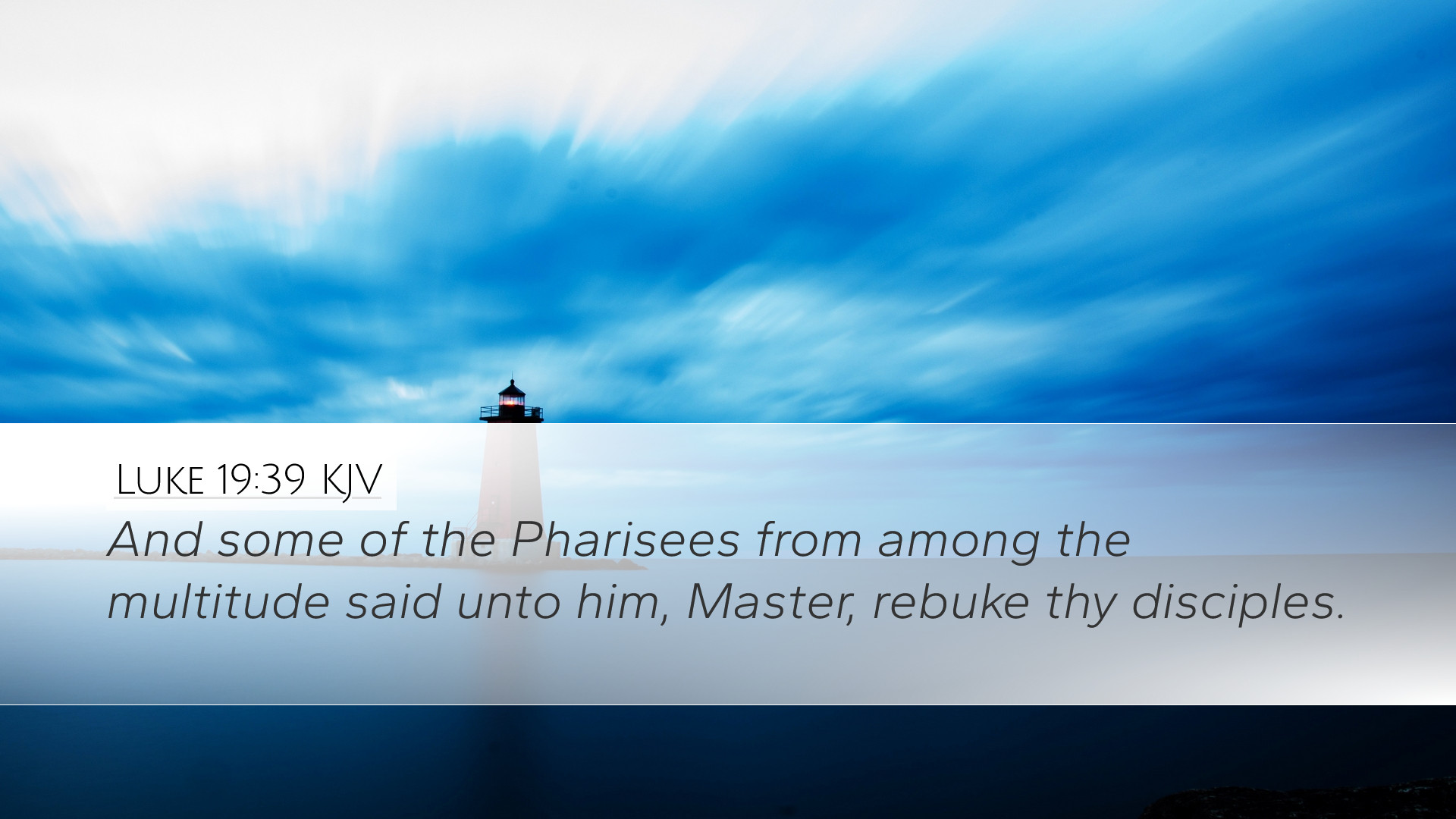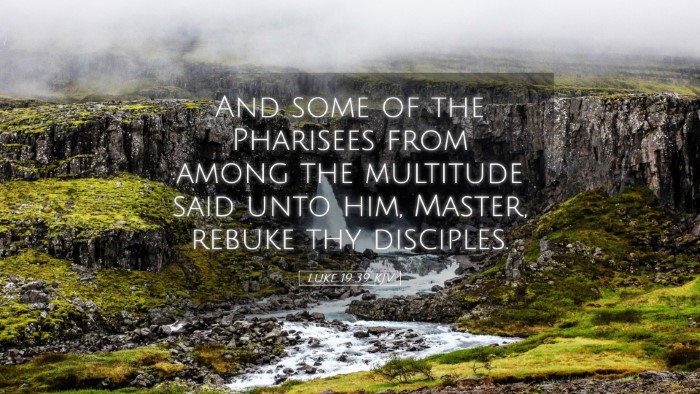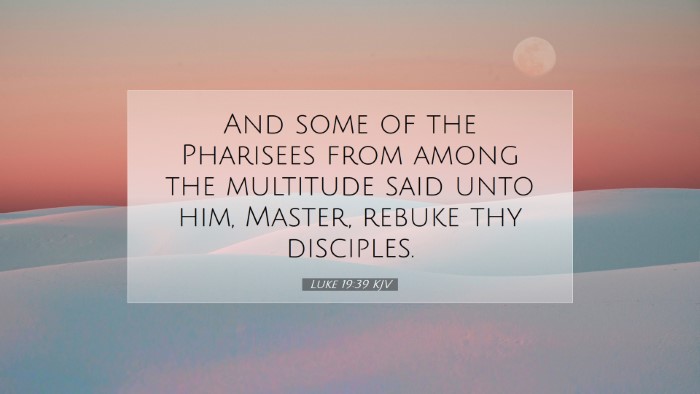Commentary on Luke 19:39
This verse occurs in the context of the Triumphal Entry of Jesus into Jerusalem, a significant event in the Gospels that marks the beginning of the Passion Week. The verse reads:
"And some of the Pharisees from among the multitude said unto him, Master, rebuke thy disciples."
Contextual Analysis
In this passage, Jesus is entering Jerusalem, and the crowds are celebrating His arrival, proclaiming Him as King. The Pharisees, representing the religious authority and the guardians of Jewish law, express their concern regarding the exuberance of the disciples and the multitude.
Historical Background
The historical context reveals a tension between Jesus and the established religious authorities. The Pharisees often viewed Jesus with suspicion and hostility, fearing that His popularity would disrupt the delicate balance of power and lead to Roman reprisals against the Jewish people.
Commentary Insights
Matthew Henry's Commentary
Matthew Henry emphasizes the Pharisees' attempt to suppress the praise of Jesus by His disciples. He points out that this request signifies a rejection of the acknowledgment of Jesus' messianic identity:
"Their desire is to silence the praises that are due to Christ as He comes to fulfil the prophecies and take His rightful place as King."
Henry suggests that the Pharisees were driven by jealousy and disdain for Jesus, failing to recognize the divine works accompanying His ministry. He further notes that the Pharisees' rebuke of Jesus reveals a deep-rooted unbelief, as they sought to restrain what they could not control.
Albert Barnes' Commentary
Albert Barnes provides an insightful analysis of the implications of the Pharisees' demand. He notes:
"The Pharisees were in evident opposition to the adoration being bestowed upon Jesus, mistakenly believing it to be blasphemous."
Barnes highlights the irony that the Pharisees, who should have recognized the reality of Jesus' messianic fulfillment, instead sought to undermine the very reaction that pertained to God's promised Saviour. He underscores that this moment demonstrates the blindness of those who are entrenched in tradition and legalism.
Adam Clarke's Commentary
Adam Clarke offers a detailed examination of the verse, pointing out the nature of the disciples' joy and the Pharisees' fear:
"The multitude's adoration and thanksgiving towards Jesus were a response to His miracles and teachings, which the Pharisees could neither dispute nor deny."
Clarke elaborates that the Pharisees' request can be seen as an attempt to maintain control over the people. He draws parallels to the prophetic declarations of the coming Messiah, noting that the very praises could not be stifled, as they were divinely ordained.
Theological Implications
- Recognition of Christ's Sovereignty: This event encapsulates the acknowledgment of Jesus as King, which was essential for understanding His mission.
- The Response of Faith: The disciples' exuberance reflects a faith response that contrasts sharply with the skepticism of the Pharisees.
- Resistance to Divine Truth: The Pharisees' insistence on silencing the followers of Christ serves as a warning against the dangers of resisting divine revelation.
Practical Applications
For pastors and theologians, this passage offers profound lessons regarding the nature of worship and the responses to Jesus. Here are a few key takeaways:
- Encouragement to Embrace Joyful Worship: The celebration of Christ should be unrestrained and full of joy as it reflects our recognition of His lordship.
- Awareness of Opposition: Just as Jesus faced opposition to His ministry, followers of Christ today must prepare for challenges that may arise from those within and outside the church.
- Understanding Christ's Mission: Fostering a clear theological understanding of who Jesus is and His role in history is paramount for effective ministry.
Conclusion
Luke 19:39 serves as a powerful reminder of the tension between faith-filled worship and institutional resistance. By examining the responses of both the disciples and the Pharisees, we are invited to consider our own responses to Jesus in our lives, churches, and communities. The call to recognize Jesus as King remains ever relevant.


